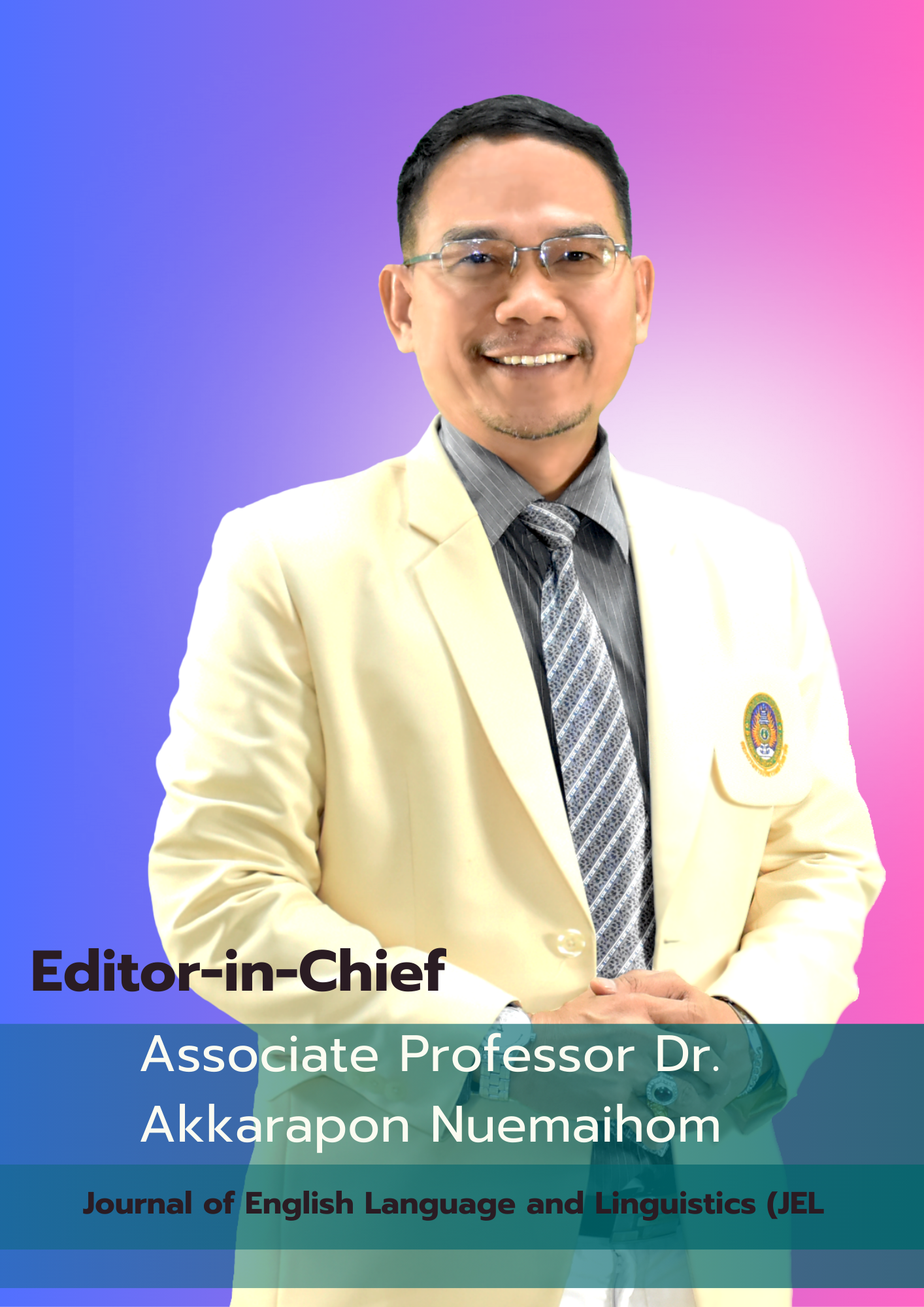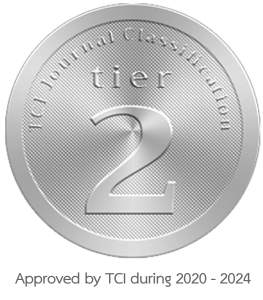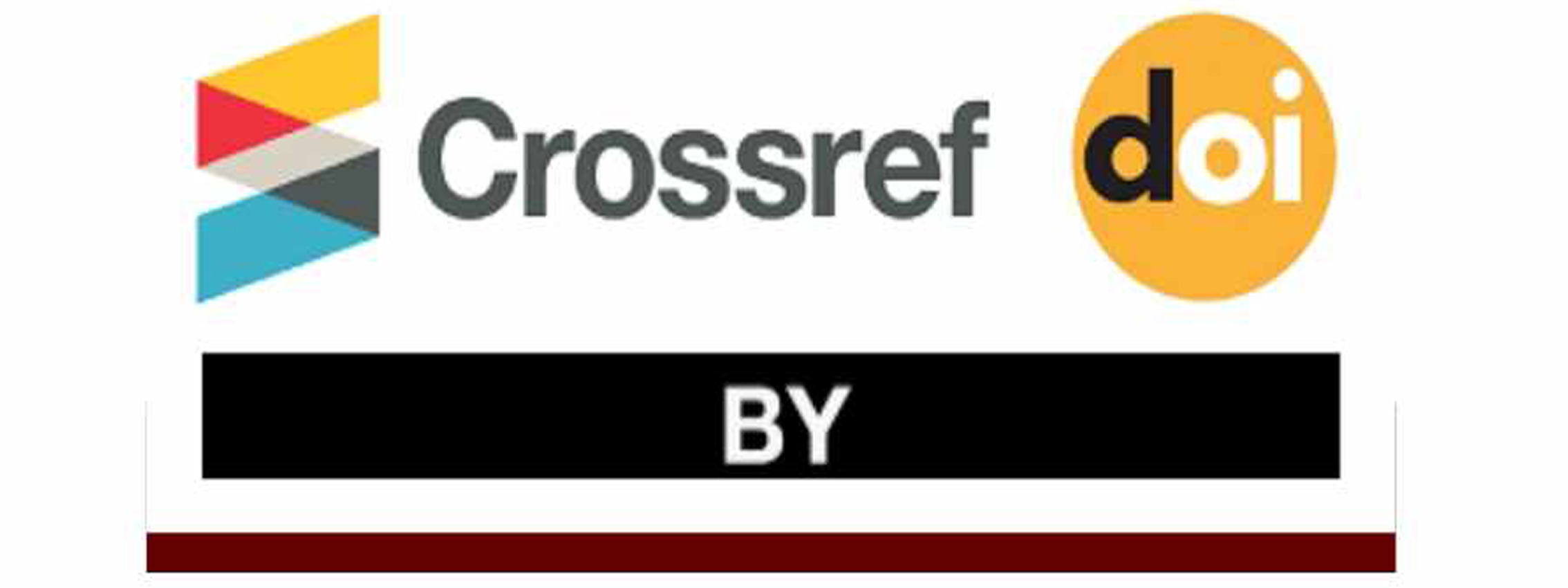English CEFR proficiency with autonomous online learning among Thai tertiary learners in a provincial public university
DOI:
https://doi.org/10.62819/jel.2025.694Keywords:
English proficiency, autonomous learning, CEFR, online platforms, Thai tertiary learnerAbstract
In the digital age, integrating autonomous learning with online English platforms presents significant opportunities for Thai learners in provincial areas. This approach empowers individuals to enhance English proficiency and achieve higher CEFR levels, aligning with Thai education policy goals using English level criteria of Common European Framework of Reference (CEFR). This study aimed to 1) compare the CEFR levels of tertiary learners engaged in online autonomous English learning, and 2) investigate learners’ autonomous English learning strategies that contribute to enhancing CEFR levels. A stratified random sample of 129 Thai tertiary learners participated in an online English development program designed to enhance CEFR levels. This explanatory sequential mixed-methods study collected data through pre-tests and post-tests via the Speexx online platform, along with a validated questionnaire demonstrating strong internal consistency. Data analysis included descriptive statistics and thematic analysis. The results showed that 45.75% of participants improved CEFR levels, 51.94% maintained the same level, and 2.33% experienced a decline. Most learners followed a similar pattern of autonomous English learning, including assessing deficiencies, setting personalized learning plans and goals, selecting appropriate online English learning platforms, troubleshooting challenges, and monitoring and evaluating progress. In conclusion, online autonomous learning strategies can effectively enhance learners’ English proficiency beyond traditional classrooms. Further research was recommended to explore additional factors influencing learner success.
References
Alharthi, M., Bown, A., & Pullen, D. (2020). The use of social media platforms to enhance vocabulary Development in learning a new language: A review of the literature. Arab World English Journal, 6, 318–331. https://doi.org/10.24093/awej/call6.21
Alsaleh, J. N. (2020). Teaching critical thinking skills: Literature review. TOJET: The Turkish Online Journal Educational, 19(1), 21–39.
Anantapol, W., Keeratikorntanayod, W., & Chobphon, P. (2018). Developing English proficiency standards for English language teachers in Thailand. Humanities Journal, 25(2), 1–35.
Apridayani, A. (2022). Exploring Thai EFL students’ self-regulated learning (SRL) strategies and English proficiency. MEXTESOL Journal, 46(1), 1–10. https://doi.org/10.61871/mj.v46n1-17
Ardana Reswari, G. P., & Kalimanzila, J. (2021). Re-promoting autonomous learning for university students: A lesson from pandemic COVID-19. Jurnal Ilmiah Profesi Pendidikan, 6(1), 38–47. https://doi.org/10.29303/jipp.v6i1.144
Assalihee, M., & Boonsuk, Y. (2023). Teaching management strategies on 21st century Islamic education for southernmost Islamic schools. Anatolian Journal of Education, 8(1), 13–28. https://doi.org/10.29333/aje.2023.812a
Beckett, H., & Slater, T. (2020). Project-based learning and technology integration in English language teaching: Challenges and innovations. TESOL Quarterly, 54(3), 616–642. https://doi.org/10.1002/tesq.567
Begum, J. (2019). Learner autonomy in EFL/ESL classrooms in Bangladesh: Teachers’ perceptions and practices. International Journal of Language Education, 3(1), 12–21. https://doi.org/10.26858/ijole.v1i1.6397
Benson, P. (2001). Teaching and researching: Autonomy in language learning. Pearson Education Limited.
Boonma, N., & Swatevacharkul, R. (2020). The effect of autonomous learning process on learner autonomy of English public speaking students. Indonesian Journal of Applied Linguistics, 10(1), 194–205. https://doi.org/10.17509/ijal.v10i1.25037
Carroll, M., Lindsey, S., Chaparro, M., & Winslow, B. (2021). An applied model of learner engagement and strategies for increasing learner engagement in the modern educational environment. Interactive Learning Environments, 29(5), 757–771. https://doi.org/10.1080/10494820.2019.1636083
Chaisuriya, A. (2023). Circumstances of and challenges in providing inclusive English education for Thai novices and monks. LEARN Journal: Language Education and Acquisition Research Network, 16(2), 499–511.
Charttrakul, K., & Damnet, A. (2021). Role of the CEFR and English teaching in Thailand: A case study of Rajabhat Universities. Advances in Language and Literary Studies, 12(2), 82–89. https://doi.org/10.7575/aiac.alls.v.12n.2.p.82
Choomthong, D. (2014). Preparing Thai students’ English for the ASEAN economic community: Some pedagogical implications and trends. LEARN Journal: Language Education and Acquisition Research Network, 7(1), 45–57.
Creely, E., Henriksen, D., Crawford, R., & Henderson, M. (2021). Exploring creative risk-taking and productive failure in classroom practice. A case study of the perceived self-efficacy and agency of teachers at one school. Thinking Skills and Creativity, 42, Article 100951. https://doi.org/10.1016/j.tsc.2021.100951
Díaz Frías, V. (2014). Working with competences in the ESL/EFL classroom. Mextesol Journal, 38(2), 1–15.
Duncan, T. (2002). IMC using advertising & promotion to build brands. McGraw-Hill.
Education first. (2021). EF EPI Reports. https://www.ef.com/wwen/epi/
Fitrianti, N. A., & Susanti, A. (2021). EFL Students’ metacognitive strategies in online-based learning: In relation to their writing quality. Paramasastra, 8(1), 1–19. https://doi.org/10.26740/paramasastra.v8n1.p1-19
Flavell, J. H. (1976). Metacognition aspects of problem solving. In L. B. Resnick (Ed.), The nature of intelligence (pp. 231–235). Lawrence Erlbaum Associates.
Genç, G. (2015). Autonomous learning capacity of EFL student teachers. International Journal of Languages’ Education, 1(6), 23–23. https://doi.org/10.18298/ijlet.483
Hendrajaya, M. R. (2023). Assessing English learning motivation among Thai university students: A cross-faculty perspective. Journal of English and Education, 9(2). https://doi.org/10.20885/jee.v9i2.31128
Hiranburana, K., Subphadoongchone, P., Tangkiengsirisin, S., Phoochaeoensil, G., J., Thogsngsri, J., Sumonsriworakun, P., Somphong, M., Sappapan, P., & Taylor, P. (2017). A framework of reference for English language education in Thailand (FRELE-TH) – Based on the CEFR, the Thai experience. LEARN Journal: Language Education and Acquisition Research Network, 10(2), 90–119.
Holec, H. (1981). Autonomy and foreign language learning. Pergamon.
Irzawati, I. (2021). The utilization of digital platforms in online learning: EFL students’ perspectives. Indonesian EFL Journal, 7(2), 131–138. https://doi.org/10.25134/ieflj.v7i2.4566
Kabigting, R., Paner, A., Jimenez, L., & Mendoza, R. (2021). Social media exposure and its perceived impact on students’ home-based tasks productivity. Study in Humanities and Education, 2(1), 70–78. https://doi.org/10.48185/she.v2i1.282
Kannasoot, P. (1999). Statistics for behavioral science research (3rd. ed.). Chulalongkorn University Press.
Khamratana, S., & Adunyarittigun, D. (2021). Critical pedagogy for transforming literacy education at border schools in Thailand. Journal of Mékong Societies, 17(3), 100–120.
Bunching, Kraithong, B., P., Singhasuwan, P., & Buddharat, C. (2021). Students’ perspectives towards NSTRU policy on English proficiency development project aligned with CEFR. Suranaree Journal of Social Science, 15(2), 75–92. https://doi.org/10.55766/KCZM2662
Lee, Y. J., & Park, J. H. (2016). The effects of online English language learning on learners’ autonomy and motivation. Journal of Computer Assisted Learning, 32(1), 1–15.
Lee, Y.-J., & Huang, Y.-H. (2017). Exploring the impact of online language learning on 21st-century skills in higher education. Journal of Educational Technology and Society, 20(1), 1–14.
Liton, H. A. (2022). Social media as assistive learning tools in digital learning dynamics: An experiential learning reflection. Managing Technology & Innovation in Teaching and Learning, 86–94.
Mansfield, G., & Poppi, F. (2012). The English as a foreign language/lingua franca debate: Sensitising teachers of English as a foreign language towards teaching English as a lingua franca. Profile Issues in Teachers’ Professional Development, 14(1), 159–172.
Oktavia, D., Mukminin, A., Fridiyanto, H., Hadiyanto, L., Marzulina, L., Harto, K., Erlina, D., & Holandyah, M. (2022). Challenges and strategies used by English teachers in teaching English language skills to young learners. Theory and Practice in Language Studies, 12(2), 382–387. https://doi.org/10.17507/tpls.1202.22
Panich, V. (2011). Ways to create learning for students in the 21st century. Sodsri Saritwong Foundation.
Peerachaipawong, N. (2023). The development of teachers’ competencies through an active learning instructional manual based on CEFR framework for grade 9 students using online supervision under the secondary educational service area office Bangkok 2. Journal of Innovation in Administration and Educational Management, 1(1), 12–24.
Piamsai, C. (2023). Development and use of CEFR based self-assessment in a Thai tertiary context. PASAA, 66, 81–126.
Ponsamak, N., & Sukying, A. (2024). Exploring the influence of word exposure via Facebook on young EFL learners’ written forms of word knowledge. Journal of English Language and Linguistics, 5(1), 71–90. https://doi.org/10.62819/jel.2024.275
Poonpon, K., Satthamnuwong, B., & Sameephet, B. (2016). Development of a communicative English language teaching model for secondary schools students. Thailand Research Fund.
Pratiwi, D. I., & Waluyo, B. (2023). Autonomous learning and the use of digital technologies in online English classrooms in higher education. Contemporary Educational Technology, 15(2), Article ep423. https://doi.org/10.30935/cedtech/13094
Pratiwi, D. I., Zulkarnain, A., & Utomo, I. S. (2021). Game-tailored instruction run by a foreign English teacher: Are the students engaged and motivated? Research and Innovation in Language Learning, 4(2), 118–130. https://doi.org/10.33603/rill.v4i2.4383
Akkakoson, S. (2019). Thai language learners’ sense of English ownership. PASAA, 58(1), Article 9. https://doi.org/10.58837/CHULA.PASAA.58.1.9
Saidalvi, A., & Abdul Samad, A. A. (2019). Online peer motivational feedback in a public speaking course. GEMA Online® Journal of Language Studies, 19(4), 258–277. https://doi.org/10.17576/gema-2019-1904-14
Sathientharadol, P., Paicharoen, N., Buranawanna, K., Teeranon, P., & Jakkaew, W. (2021). Effects of online learning in the epidemic situation of coronavirus disease 2019: A case study of Bachelor of Education and Bachelor of Arts students, Program in English, University of Phayao. Journal of SaengKhomKham Buddhist Studies, 6(3), 423–439.
Sermsap, P. (2017). Using technology to teach English to step into Thailand 4.0. Mahachulagajasara Journal, 8(1), 32–43.
Sirisukeepradit, P., & Yippikun, C. (2024). The role of motivation in achieving English exit examination: A case study on Thai undergraduate nursing. Journal of English Language and Linguistics, 5(2), 140–159. https://doi.org/10.62819/jel.2024.418
Sonthirak, T., Lakhamja, R., Rawengwan, W., Phulthong, W., & Talan, W. (2022). Dimension of English teaching and learning styles in the new normal. Journal of MCU Humanities Review, 8(1), 413–432.
Swatevacharkul, R. (2009). An investigation on readiness for learner autonomy, approaches to learning of tertiary students and the roles of English language teachers in enhancing learner autonomy in higher education. Dhurakij Pundit University.
Swatevacharkul, R. (2014). Learner training: A gateway to learner autonomy. Applied Arts, 7(1), 94–104.
Swatevacharkul, R., & Boonma, N. (2021). Learner autonomy assessment of English language teaching students in an international program in Thailand. Indonesian Journal of Applied Linguistics, 10(3), 749–759.
Taylor, P., Argasvipart, K., Kanokpermpoon, M., Rattanawisadrat, N., Dyamond, B. J., & Hrylytskyy, A. (2023). Stakeholders’ perceptions related to technology acceptance of Reading Progress". In Microsoft teams: A case study of a trilingual program at a Secondary School in Thailand. LEARN Journal: Language Education and Acquisition Research Network, 16(2) (pp. 718–736).
Waluyo, B. (2019). Thai first-year university students’ English proficiency on CEFR Levels: A case study of Walailak University, Thailand. The New English Teacher, 13(2), 51–71.
Wankhong, A. (2016). English teaching in the 21st century. Journal of Yanasangvorn Research Institute, 7(2), 303–314.
Wolters, C. A., & Brady, A. C. (2021). College students’ time management: A self-regulated learning perspective. Educational Psychology Review, 33(4), 1319–1351. https://doi.org/10.1007/s10648-020-09519-z
Wongsa, M., & Son, J.-B. (2022). Enhancing Thai secondary school students’ English speaking skills, attitudes and motivation with drama-based activities and Facebook. Innovation in Language Learning and Teaching, 16(1), 41–52. https://doi.org/10.1080/17501229.2020.1853134
Wongsopha, A., Saisrisod, S., & Yanwari, N. (2015). The Usage behavior on Facebook social media online and their effects on students’ life style: A case study of Loei Rajabhat University. Research and Development Journal, 10(33), 1–10.
Wongsothorn, A., Hiranburana, K., & Chinnawongs, S. (2002). English language teaching in Thailand today. Asia Pacific Journal of Education, 22(2), 107–116. https://doi.org/10.1080/0218879020220210
Yamane, T. (1970). Statistics: An introductory analysis (2nd ed.). John Weatherhill, Inc.
Young, D. (2021). The hierarchy of Thailand and its effects on English language learning. LEARN Journal: Language Education and Acquisition Research Network, 14(1), 15–27.
Zhao, Y., & Liu, Y. (2018). Promoting autonomous English language learning through online communities. Computer Assisted Language Learning, 31(2), 189–207.
Zhao, Y., & Liu, Y. (2019). The role of online technology in developing 21st-century skills: A case study of English language learners. International Journal of Instructional Technology and Distance Education, 16(2), 23–35.


















